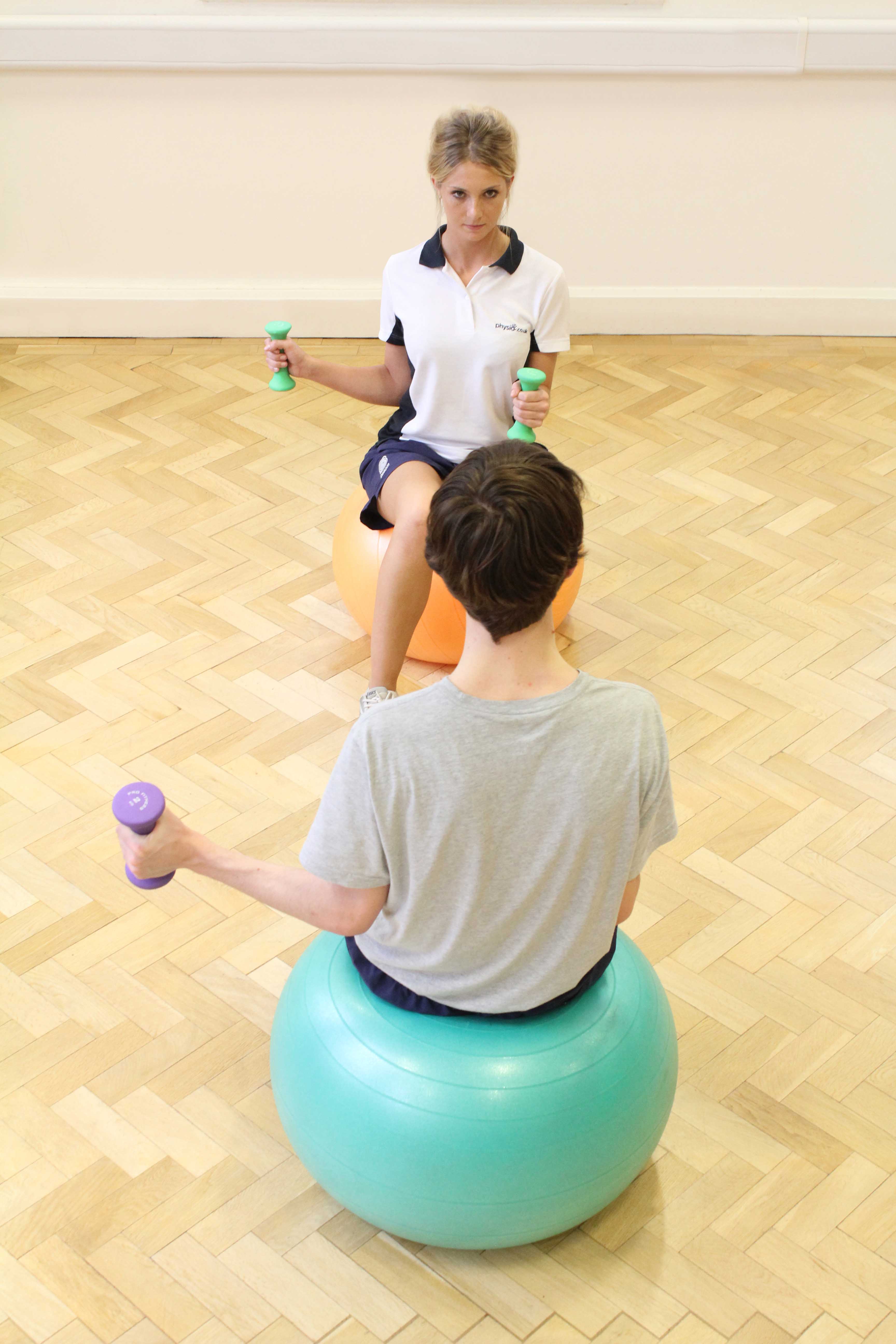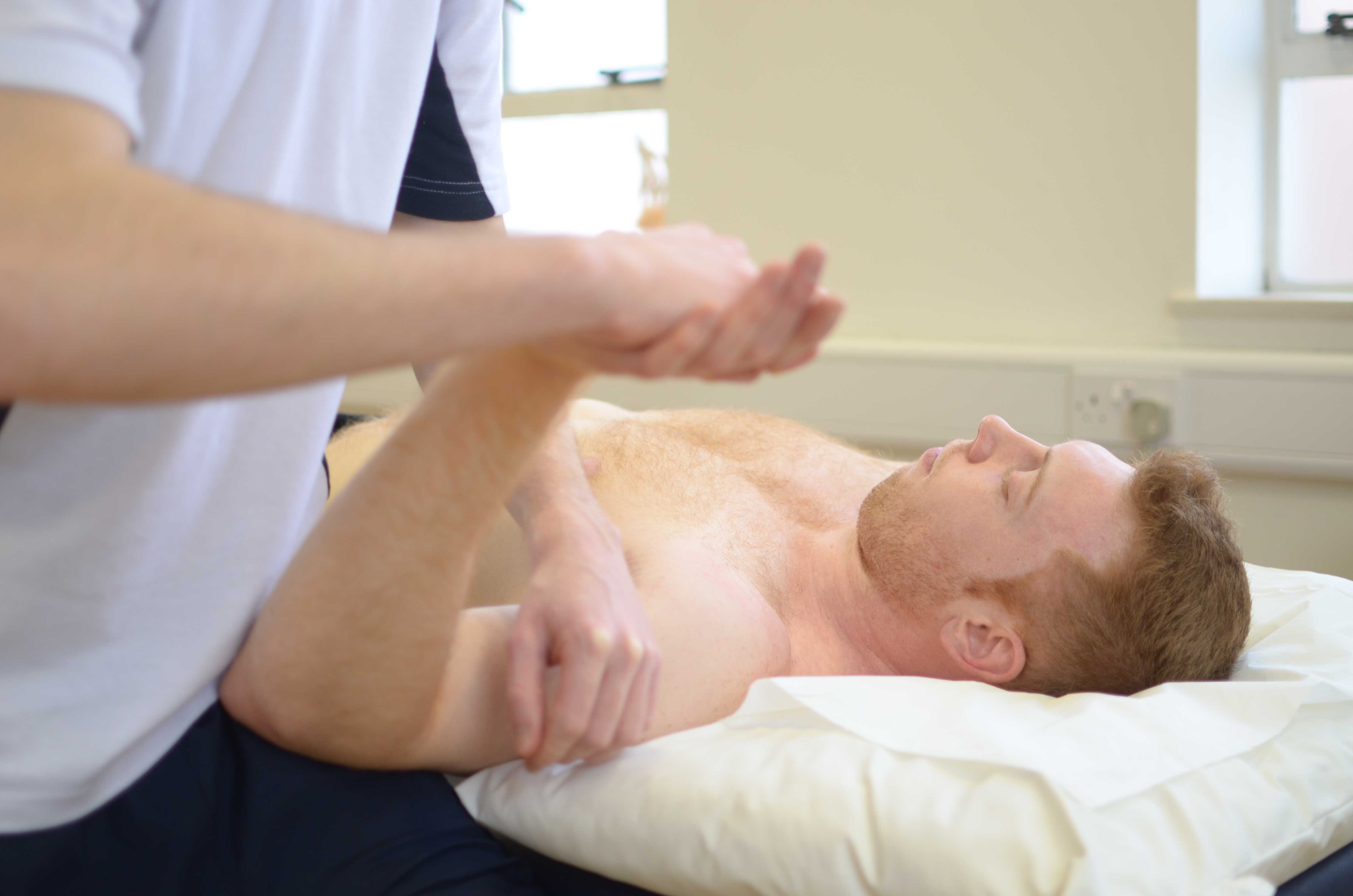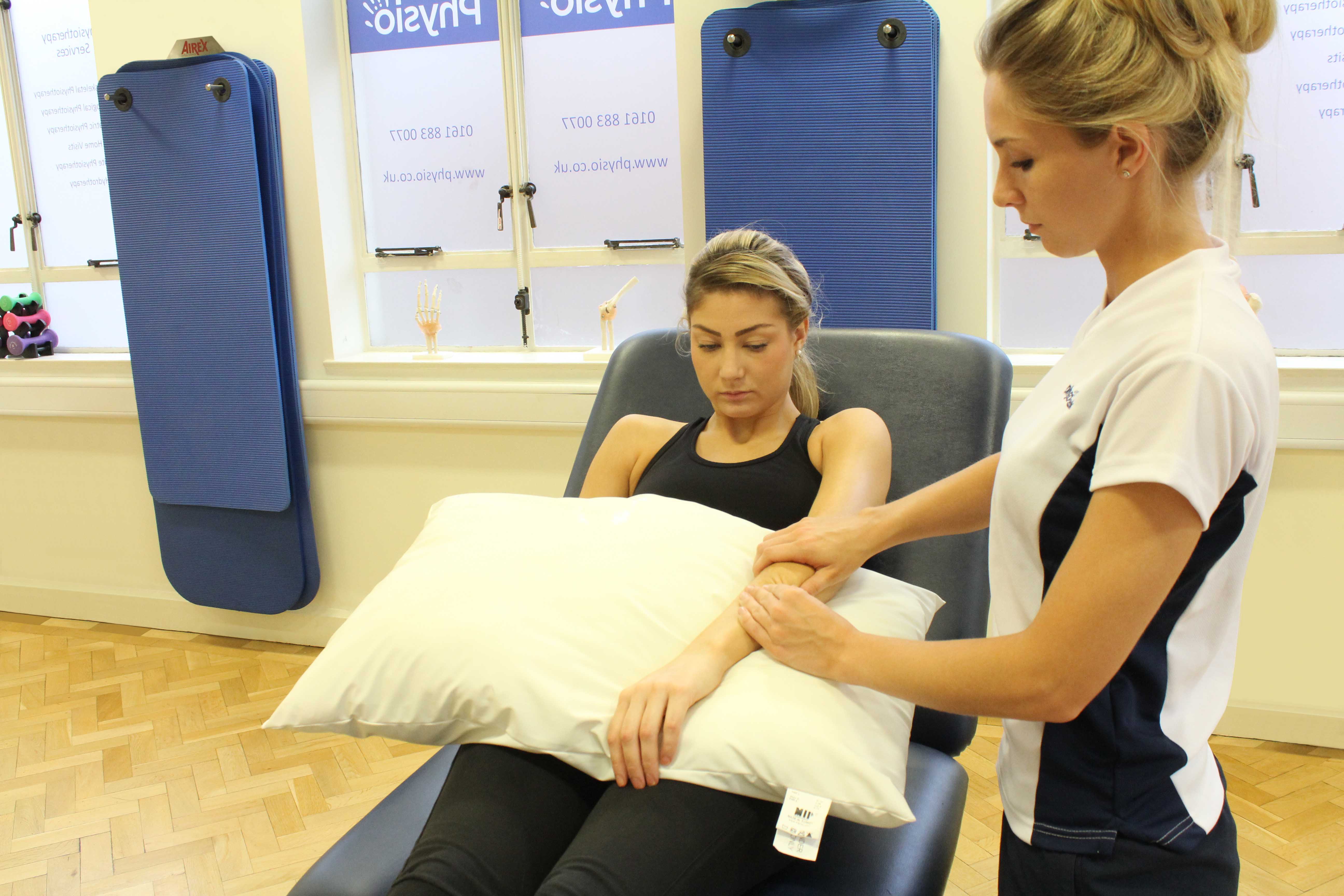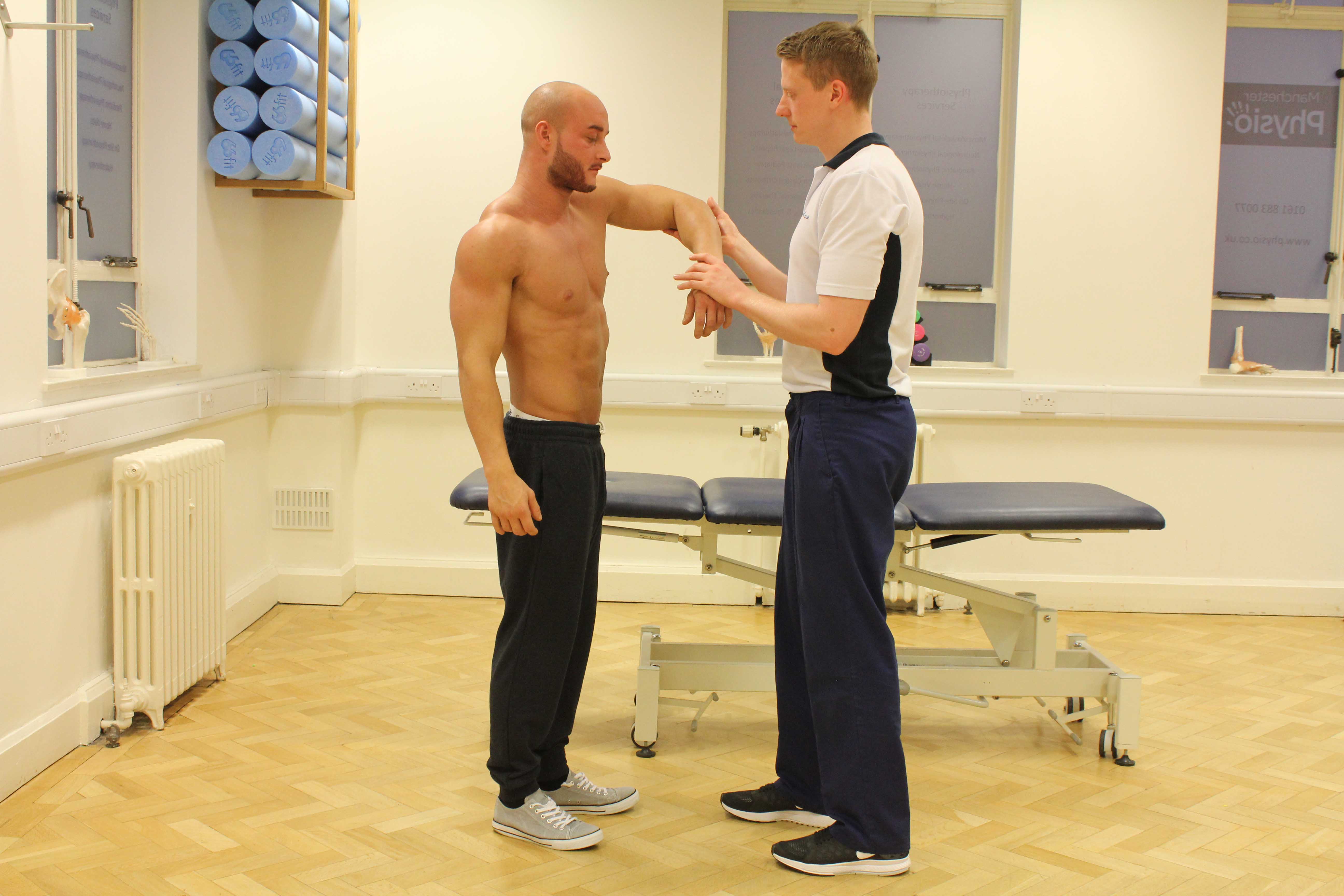Knee Arthroscopy
Knee Arthroscopy is a surgical procedure used to investigate problems in the knee. With knee arthroscopy, the surgeon is able to take a look inside the joint to examine, diagnose and treat a variety of problems such as;
- Arthritis
- Inflammation
- Acute or chronic injury
- Damaged tissues or ligaments
- Damaged cartilage
- Pain
- Joint weakness
 Above: Mobilisation exercises for the knee joint
Above: Mobilisation exercises for the knee jointArthroscopy can also be referred to as keyhole surgery
Arthroscopy takes place by the surgeon making a small incision in the skin and inserting an arthroscope. The arthroscope is a narrow, pencil sized instrument with a light source and a small lens attached to the end which transmits pictures back to a TV monitor. This allows the surgeon to visualise and diagnose the problem within the knee. In addition, small instruments can be attached to the end of the arthroscope to repair any damage, take small biopsies and remove or trim any torn ligaments or tissues.
Arthroscopy is most commonly used for knee problems and is appropriate in most cases as it is considerably more accurate than other assessments such as X-rays, magnetic resonance imaging (MRI) scans, computer tomography (CT) scans or physical examinations alone.
 Above: Patella mobilisations performed by MSK Physiotherapist
Above: Patella mobilisations performed by MSK PhysiotherapistPhysiotherapy before a knee arthroscopy
Prior to your arthroscopic knee surgery Physio.co.uk will provide you with a programme that involves exercises to help strengthen the muscles in and around your knee. This will better prepare you for both the surgery and your further rehabilitation afterwards. Exercises will be aimed at strengthening your quadriceps and hamstrings mostly.
Symptoms post arthroscopy
Immediately after the surgery you will need rest until the anaesthetic wears off. Additionally due to the anaesthesia, you may experience numbness and it may take several hours before sensation comes back to your knee. As the anaesthesia wears off, you may start to feel slight pain and discomfort in and around your knee and therefore you will be given pain relief. Stiffness and minimal swelling is also likely post arthroscopy.
Arthroscopy is carried out mainly as a day case procedure and therefore if no complications occur it is likely you will be home as soon as you’re ready, you will experience little pain and recovery will be rapid. Additionally, walking aids are not usually required unless you have significant pain or any complications are evident. You will not be able to drive immediately after arthroscopy but you can return to driving between 2 and 5 days providing there has been no complications and the knee is pain free.
 Above: Mobilisations of the knee joint during an assessment by a MSK therapist
Above: Mobilisations of the knee joint during an assessment by a MSK therapistPhysiotherapy treatment post arthroscopy
Immediately after your arthroscopy, physiotherapy treatment from Physio.co.uk will focus on reducing pain and swelling in your knee.Rest, ice, compression and elevation (RICE) initially post surgery is advised to reduce any pain and swelling. Physiotherapy treatment at this stage will further aim to get you weight bearing and fully mobilised as soon as possible after your surgery. Initial exercises such as quadricep strengthening and stretching will be prescribed to strengthen your knee.
Although pain is minimal post surgery, it may take several weeks for your knee to fully recover. When you have been discharged from hospital, Physio.co.uk will provide you with a specific physiotherapy rehabilitation programme that now focuses on rapidly getting you fully recovered and back to your everyday activities or sport. It is more than likely you will be able to return to your daily tasks and job within a week of surgery depending on the physicality of the job. Return to any sports may take 1-4 weeks depending on your individual progress.
 Above: Mobilisations of the knee joint by a MSK therapist
Above: Mobilisations of the knee joint by a MSK therapistPhysiotherapy following knee arthroscopy includes:
- Patella mobilisations to relieve stiffness
- Quadriceps stretches and strengthening exercises
- Hamstrings and calf stretches and strengthening exercises
- Weight bearing and transferring
- Hip and ankle exercises
- Proprioception (balance) exercises
- Gait exercises
- Basic plyometrics (jumping)
- Hydrotherapy
- Pain management techniques
- Core stability exercises
- Light cycling
- Swimming
- Weight training
- Jogging
Summary
Knee arthroscopy is a minimally invasive surgery that may be required to examine, diagnose or treat any knee problems that you may be suffering. Physiotherapy with Physio.co.uk is highly recommended post arthroscopy to decrease the likelihood of any complications, reduce your pain and get your knee fully functioning as soon as possible so that you can return to what you love doing the most whether it be your job, hobbies or sport. Call Physio.co.uk now on 0330 088 7800 for more information or to book an appointment!

 0330 088 7800
0330 088 7800


































